














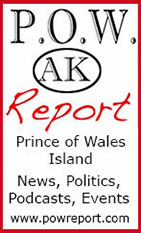

 Contact Contact 
 Webmail
Letters Webmail
Letters
 News Tips News Tips
 Copyright Info Copyright Info
 Archives Archives
Quick News
Search
 Alaska Alaska
 Ketchikan Ketchikan
 SE Alaska SE Alaska
Columns
- Articles
 Dave Kiffer Dave Kiffer
 Money Matters Money Matters
Historical
Ketchikan
 June Allen June Allen
 Dave
Kiffer Dave
Kiffer
 Louise
B. Harrington Louise
B. Harrington
Sports
 Ketchikan Links Ketchikan Links
Public Records
 FAA Accident Reports FAA Accident Reports
 NTSB
Accident Reports NTSB
Accident Reports
 Court Calendar Court Calendar
 Recent Filings & Case Dispositions Recent Filings & Case Dispositions
 Court Records Search Court Records Search
 Sex Offender Reg. Sex Offender Reg.
 Public Notices Public Notices
 Alaska Recall Alerts Alaska Recall Alerts
 Recalls.gov Recalls.gov
 AST Daily Dispatch AST Daily Dispatch
 KTN
Police Reports KTN
Police Reports
 Juneau Police Reports Juneau Police Reports
Weather,
Webcams
 Today's
Forecast Today's
Forecast
 KTN
Weather Data KTN
Weather Data
 AK
Weather Map AK
Weather Map
 AK Weathercams AK Weathercams
 AK Earthquakes AK Earthquakes

|
|

Sunday
July 26, 2020
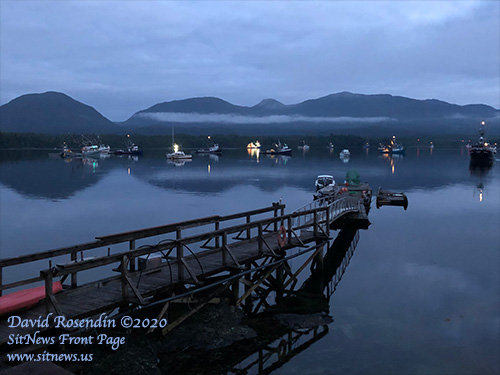
Fleets In
Friday Morning
Front Page Photo By DAVID ROSENDIN ©2020
To have your photo featured on the front page,
email your photo(s) to editor@sitnews.us |
|
Ketchikan: 4 Ketchikan Smart Start Town Hall Meetings Scheduled July 27th; No Confidence in Superintendent Petition Circulating By MARY KAUFFMAN - The Ketchikan Gateway Borough School District plans to hold four town hall meeting on Monday, July 27, 2020. The district is inviting the public to learn more and have questions answered at one of the in-person or virtual town hall meetings. The purpose of the meetings will be to address the Smart Start of the school year.
To participate, people are asked to sign up, click here. All 4 meetings are scheduled to take place Monday. In person meetings are scheduled for 6:00 PM & 7:00 PM at Ketchikan High School. According to the district's website, startup is planned for September 8th at this time.
Last week Beth Lougee, Superintendent Ketchikan Gateway School District, testified before the Alaska House Education Committee, and during that presentation she expressed to the committee how the district has worked with the parents in the Ketchikan community in the planning process during the school site closures and the start of the new school year.
However, not all parents and community members are pleased with how the planning has been conducted and the lack of their inclusion in the planning. A letter to the Ketchikan School Board accompanying the petition drive for change alleges, “Workshops have been held and the parents who have expressed concerns were not invited, only those who follow her agenda or those who do not speak out seem to be invited.”
Regarding the town hall meetings scheduled for Monday, the letter further alleges, “Mrs. Lougee is very selective of who she wants to include. As of now, it appears decisions were made already and the Town Hall Meeting set for 7/27/2020 is just a formality to appease the community rather than include them.”
The signers of the petition are giving a “No Confidence” vote to Lougee. The petition for change was started over the weekend and collected signatures for almost 300 people by Sunday evening.
The petition, “Voices for Ketchikan Education No Confidence Petition”, includes a petition letter to the KGBSD Board of Education. - More...
Sunday PM - July 26, 2020
Alaska: Alaska reports record number of COVID-19 cases with 231 cases today - The Alaska Department of Health and Social Services today announced the highest number of new COVID-19 cases in Alaska for a single day so far – 231 newly diagnosed individuals. Of these, 186 are residents and 45 are nonresidents. Of the nonresident cases, 34 are in the seafood industry, one is in the visitor industry and 10 are unknown.
Today’s record high case count for Alaska’s residents can be attributed to a variety of factors, including widespread community transmission from social gatherings, several large seafood industry outbreaks and a backlog of test results that were just entered into the database. Over half of these results are initially submitted via fax, and some are reported by phone, which requires manual verification and then data entry into our data hub. Test results arrive in batches and are not always submitted daily, which can add to the backlog.
- More...
Sunday PM - July 26, 2020
Ketchikan: Back when doctors made house calls! Members of the Wilson family served Ketchikan for more than 60 years BY DAVE KIFFER - For more than 60 years, health care in Ketchikan was spelled with a "W," as in Wilson.
From the 1930s into the mid-1990s, members of the Wilson family, Arthur Senior, James and Arthur Junior practiced in Ketchikan. Twenty-five years after the last Wilson, Arthur Junior, retired the main PeaceHealth Clinic building in town is still called the Wilson building in honor of the family.
The story of how the Wilson doctors came to Ketchikan begins more than 7,200 miles and 122 years away.
Arthur N. Wilson Sr. was born in Miraj, India in December of 1898. His father, also a doctor, was a medical missionary for the Presbyterian Church at a large medical facility 200 miles south of Bombay (now Mumbai).
Wilson stayed in India until his family moved back to the United States in 1910 when his father contracted typhoid fever and pleursy. Dr. Wilson recovered, but when the family moved back to India - where they would stay until 1925, Arthur remained with relatives in Colorado.
He would go to Colorado College and the Rush Medical School, where his father had graduated from in 1898. Then Arthur would intern at Cook County Hospital in Chicago. It was there he met his future wife, Dagmar, who was from Wisconsin and was doing graduate social services work at the hospital.
He then spent a year in Warroad, Minnesota near the Canadian border. In a 1982 oral history, Wilson said it "35 degrees below zero, all winter long" in Minnesota and he was happy to move his family out to Seattle where he did contract work for logging companies. mostly on the Olympic Peninsula near Port Ludlow.
In 1930, he ended up in Alaska, working for mines at both Latouche and Kennicott.
"They had 250 miners there (Kennicott) when I was there," Wilson said, in the 1982. The oral history recently donated to the Tongass Historical Society Museum by his granddaughter, Kathy Paulson. "We had an eight-bed hospital, three nurses, a little x-ray with overhead wires, you had to be on alert every time you used the X-ray and be sure no one ran into a wire."
In 1933, the Kennicott mine shut down because of low copper prices and Wilson went to Seattle but soon ended up back in Alaska, in Ketchikan. He would stay in the First City for the next 50 years.
Wilson said that in 1933, during the Great Depression, there were no jobs in Seattle, even for doctors. A medical-supply salesmen he met told him that Dr. John Beson was looking to leave Ketchikan and there would be an opening there. He jumped at the chance, especially after talking to drug store owner Harry Race.
"Wilson, go to Ketchikan," he said Race told him. "They are set with fishermen there. Ketchikan will pay their bills. Maybe they don't make any money this winter. They may keep you waiting till next winter. But there are four kinds of fishermen and at least two of them will have some money. If the seiners don't, the halibut fishermen do. Go down there. So that is how I landed here, anyhow."
Wilson joined Dr. Harvey Ellis and Dr. J.H. Musterd as the doctors in the town of roughly 3,000 people.
"We made lots of house calls," Wilson said. "It worked out just like Race said."
Later in the 1930s, Dr. Henry Turner and Dr. Dwight Kramer came to Ketchikan as well. Kramer would serve in in Ketchikan into the early 1960s, Wilson said.
Dr. Louis Salazar and Dr Ralph Carr also came to the community during the 1940s, both with the Indian Health Service, Wilson said. - More...
Saturday PM - July 25, 2020
|
|
Alaska: $600 Federal UI Stimulus Payments Expiring - The Federal Pandemic Unemployment Compensation (FPUC) payment of $600 per week for unemployed workers will soon expire. The last payable week of FPUC will be July 25, 2020.
The payment was retroactive to the week of March 29-April 4, 2020. Individuals received the additional $600 payment with their regular weekly state unemployment benefit.
The $600 is a federal stimulus payment passed under the CARES Act in response to the COVID-19 pandemic.
In early June, Alaska Department of Labor and Workforce Development (DOLWD) Commissioner Tamika Ledbetter announced that Alaska was taking measures to prevent fraud or misuse of the Unemployment Insurance (UI) program, including the expanded $600 weekly federal unemployment benefits under the CARES Act. - More...
Saturday PM - July 25, 2020
Fish Factor: Chance for Alaska Seafood Industry Stakeholders to Provide Input on Policy Decisions
By LAINE WELCH
- Alaska’s seafood industry stakeholders have a four bagger chance to provide input on policy decisions that directly affect their livelihoods: trade, relief payouts for cod and salmon, Board of Fisheries meeting plans and appointees. For several, the window of opportunity is tight.
Here is the line-up according to the deadline dates for comments:
1. Trade input - By August 1 suggestions are invited for a newly-established seafood trade task force to be chaired by the U.S. Trade Representative and the Dept. of Commerce. The chance to provide input, which was just announced on July 13, stems from a presidential executive order signed in May on Promoting American Seafood Competitiveness and Economic Growth.
The task force “will work to support fair market access for U.S. seafood products through trade policy and negotiations” and “will work closely with interagency partners to develop a comprehensive interagency seafood trade strategy,” said a press release. It added “the strategy will identify opportunities to improve access to foreign markets through trade policy and negotiations; resolve technical barriers to U.S. seafood exports; and otherwise support fair market access for U.S. seafood products.
Comments can be sent via email to SeafoodTrade.Strategy@noaa.gov by August 1, 2020. As of July 24 only 19 comments had been submitted.
2. Relief for cod and salmon failures– Comments are wanted by August 14 on draft plans to distribute $24.4 million in relief payments for the 2018 Gulf of Alaska cod crash and $10.3 million for the sockeye salmon run failure at Chignik. The funds were cut loose by the U.S. Secretary of Commerce in late February and the State of Alaska, in consultation with industry and NOAA Fisheries, has developed a draft payout plan. Upon completion, the Alaska Dept. of Fish and Game will work with the Pacific States Marine Fisheries Commission to distribute the funds as quickly as possible.
For cod, the draft plan calls for 40% of the $24.4 million to go to harvesters among six gear sectors. The proportions for each are based on losses determined by comparing the five-year averaged adjusted wholesale values from 2013 to 2017 to the 2018 value (as shown on a table).
Processors would receive 26% of the funds based on the average wholesale value of cod processed from 2013 to 2017 using Commercial Operator’s Annual Report (COAR) data.
Communities that depend on revenue generated from cod landings and other economic activity are eligible for 4%.
Thirty percent of the funds are earmarked for research to be awarded by competitive bid; about one percent would go to cover a program coordinator position on behalf of the State. - More...
Saturday PM - July 25, 2020
|
|
Alaska: Monkey Boats and Sailboats;
Bringing a Bristol Bay Relic Back to Life By BJORN DIHLE
- When Jeffery and Christine Smith were shown the David B, an ancient Bristol Bay tug, known as a monkey boat, it appeared that every cormorant in Washington State had been pooping on it for decades. The young couple were dreaming of buying and refurbishing a boat into a small cruise ship. Christine looked at the rotting 65-foot relic, then at her husband, and felt a tightening in her stomach when it became obvious Jeffery was smitten.
“We were looking for a boat with a really cool history,” Jeffery said over the phone this June, 17 years later, as he and Christine were taking a break from readying the David B to journey from their home in Bellingham to Southeast Alaska. “I knew right away that it was the David B.”
The David B was in such sorry shape that had the Smiths not purchased the boat it would likely have soon been scrapped and burnt. Despite the daunting process of resurrecting the David B, Christine quickly fell in love with the old boat. The couple learned it had been built in 1929 at a shipyard on Lake Washington for the Libby, McNeil and Libby Company. Among other things, that company owned a cannery in Bristol Bay. The boat was named after David W. Branch, the general manager of the company’s salmon operation. The David B then motored to the company’s cannery at Ekuk on the Nushagak River in Bristol Bay.
By law at the time, Bristol Bay fishermen were not allowed to use powerboats. Instead, they used 30-foot long double-ender sailboats owned by different canneries. This rule, lasting from 1929 to 1951, was largely upheld at the behest of the canneries, which owned the fleet of sailing boats. Power boats would have offered fishermen more independence from the canneries. There was a loophole in the law, though, and that’s where the David B came in. The David B, along with other monkey boats, also owned by canneries, were allowed to haul the sailboats, in a string of 10 to 15, to and from fishing grounds.
Around 2001, when Tim Troll, now the Executive Director of the Bristol Bay Heritage Land Trust, was living in Dillingham, he found a double-ender sailboat rotting in the weeds near the Peter Pan Cannery. The cannery was about to turn a hundred years old and Troll, fascinated by the history of Bristol Bay’s sailboat fishery, began a multi-year project that’s resulted in the publication of the book Sailing for Salmon: The Early Years of Commercial Fishing in Alaska’s Bristol Bay.
“What I wanted to do was collect colorful quotes about what it was like to be on those boats,” Troll said.
The book includes a collection of vintage photos depicting hardened and incredibly skilled fishermen, often described as “iron men in wooden boats.” Like today, Bristol Bay’s fishery was thriving, amounting to around 40 percent of the salmon caught in Alaska. Fishermen, normally working in pairs, pulled in nets by hand, while expertly managing sailboats through nuanced and sometimes dangerous conditions. Most fishermen were Scandinavian and Italian; canneries would encourage the pitting of the two ethnic groups against each other. Natives weren’t allowed in the fishery until World War II when many men left to fight in the war, and canneries were suddenly faced with a shortage of fishermen. Not surprisingly, when the law changed in 1951 to allow motorboats in the fishery, the Bristol Bay sailboat became obsolete.
Troll, along with others, is currently finishing up refurbishing an old double-ender Bristol Bay sailboat. Their plan is to sail it from Homer to Bristol Bay next year, if the pandemic is under control, which marks the 70th anniversary since motorboats took over the fishery. Troll estimates the journey will take two weeks and plans on visiting the different communities along the way. - More...
Saturday PM - July 25, 2020 |
|
Alaska: What climate change means for Alaska’s rivers - and king salmon By MARY CATHARINE MARTIN - A new study has found that the answer to Alaska’s Chinook salmon decline lies not just in the ocean, but also in freshwater rivers and streams — and that climate change’s effects on Alaska’s freshwater systems are affecting king salmon.
“The take-home message is that what happens in freshwater really matters to the strength of our salmon runs in Alaska,” said University of Alaska Fairbanks research scientist Erik Schoen. “In a lot of ways, that’s good news, because we have some control over freshwater conditions in our salmon streams.”
The study, led by the University of Alaska, with data from the Alaska Department of Fish & Game and Cook Inletkeeper and with help from additional authors as well, focused on 15 Chinook populations in Cook Inlet over a span of almost three decades. It found that heavier than average rainfall in late summer and fall leads to fewer surviving Chinook — the rain moves gravel, which displaces eggs. Those findings may be relevant to other regions, even those, like Southeast Alaska, which are typically rainy in the fall, because the key is “above average” rainfall — different river systems are adapted and optimized to different conditions, Schoen said.
On the positive side, the study also found that higher-than-average summer rainfall during juvenile rearing was good for Chinook.
Water temperatures above 64 degrees Fahrenheit for a week or more in the summer during spawning decreased Chinook productivity. In 2019, a year of record heat for the state, Alaska’s salmon made international headlines when water temperatures in some rivers rose above 80 degrees and thousands of salmon died of heat stroke before they could spawn.
All of these things are happening more as climate change, which is warming Alaska at twice the global average, also changes Alaska’s rain, snowpack, and glacial melt — and, accordingly, the flow, timing and temperature of its rivers. Climate change is also increasing “extreme precipitation events” across the state. - More...
Saturday PM - July 25, 2020
|
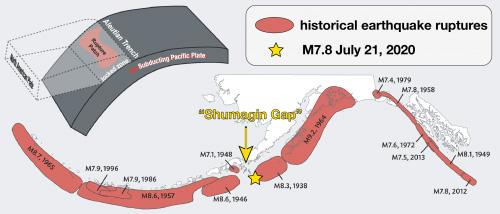
Earthquake adds missing piece to puzzle
By NED ROZELL
This map relfects all the large recent earthquakes on the Aleutian Subduction Zone, including the magnitude 7.8 in the Shumagin Gap
that occurred July 21, 2020.
Graphic courtesy Alaska Earthquake Center |
|
Alaska: Earthquake adds missing piece to puzzle By NED ROZELL - Late in the evening of July 21, 2020, State Seismologist Michael West heard a text alarm. His phone informed him of a large earthquake beneath the ocean, just south of the Alaska Peninsula, about 60 miles southeast of the village of Sand Point.
His first thought was that this — the biggest earthquake on the planet so far in 2020 — would cause a devastating tsunami. His second thought was that a longstanding earthquake mystery may have just been solved.
To West’s relief, the magnitude 7.8 earthquake that happened at 10:12 p.m. Alaska time did not cause a damaging tsunami. Reports of six-inch waves on the shores of Sand Point were among the highest recorded.
West and his colleagues at the University of Alaska Fairbanks Geophysical Institute were still awash in data one day after the event. But he was quick to point out a scientific paper written by the first Alaska state seismologist, John Davies, in 1981.
In it, Davies and his coworkers proposed a “seismic gap” just south of Sand Point. There, they wrote, was a swath of one of the world’s great subduction zones that had not ruptured in a long time. It was perhaps due.
Davies made his prediction after field campaigns in the 1970s, during which he and his co-workers had installed seismometers near Popof Island, upon which the village of Sand Point (population 1,140) sits.
“From 1938 to 1965, almost the entirety of the Alaska subduction zone ruptured,” West said. “There were only two places that didn’t rip — one in the Yakutat area and another in the Shumagin Islands (where the July 21, 2020 earthquake occurred).
“Here, you have this 1981 paper that says you’ve ruptured everything except these sections, and that’s where you should expect the next big earthquake.”
Subduction-zone earthquakes are the largest and most destructive on Earth, West said, citing the 1964 Good Friday and 2011 Tohoko earthquakes as examples. He described the Aleutian Subduction Zone, which is responsible for the Aleutian Islands’ existence, as follows:
“The Pacific Plate is careening northwestward a couple of inches each year into the stronger North American Plate,” he said. “This forces the Pacific Plate to thrust down under Alaska. Major earthquakes happen at the boundary where these two plates rub together.”
John Davies, who wrote the paper predicting an earthquake like the one that happened Tuesday night, was elected to the Alaska State Legislature in 1993. He then had to resign from his position at the Geophysical Institute, where, like West, he was the state seismologist. - More...
Saturday PM - July 25, 2020
|
|
DAVE KIFFER: The helper needs some help here - Lately I am feeling a little bit out of sorts.
Like, somehow, I'm not doing something really important that I should be doing.
Yes, my day job is still keeping me busy. Yes, my million other community commitments continue. To be sure, I am not spending hours at the ballfield watching Liam play baseball in the rain, but that's not what I am talking about here.
Though, now that I mention it, I am seriously craving a good ballpark concession stand cheeseburger. Damn you COVID 19!!!!
But I digress.
Anyway, without the visitors here in force this summer, I feel like I am missing out on my "true life calling." That of Ketchikan "Helper in Chief."
As I write this, for example, it is a somewhat lazy weekend afternoon. It would be a great day to wander Downtown and answer a few questions such as "Hey, are you a local? " Or "What is there to do around here?" Or even "For Thomas Crapper's sake, where is a bathroom?"
To be sure, I am still getting plenty of historical reference requests on the Outernet.
"Hey Mr. Kiffer, My great uncle Bob Jones was on a fishing boat in Ketchikan in 1935. Can you tell me what its name was?"
Or "My great Aunt Cleopatra worked on Creek Street. No, not that. She was a "laundress" for some of the houses. Her last name back then was Brown. or maybe Smith. Are the houses she worked for still open?"
Hmm, those were too easy. The answers were both "no." - More...
Saturday PM - July 25, 2020
|
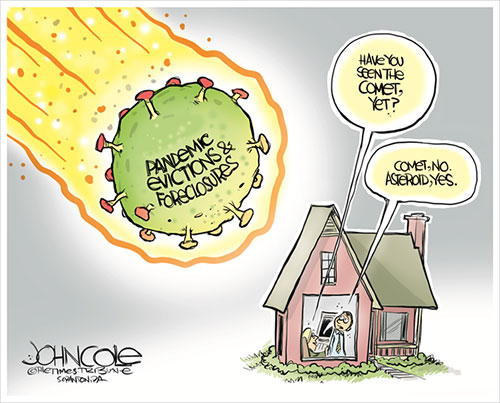
Political Cartoon: Pandemic housing asteroid
By John Cole ©2020, The Scranton Times-Tribune, PA
Distributed to paid subscribers for publication by Cagle Cartoons, Inc. |
 |
Selective History By Jerry Cegelske - I am currently reading a book by Glenn Frankel called "The Searchers", ($1 from Friends of the Library). This is the story of the 1836 capture of Cynthia Ann Parker who was captured by the Comanches and was later the mother of Chief Quanah Parker. The book states that her male relatives were killed (sexism?) while the children and females were kept as slaves. James Parker searched for Cynthia for five years and she was not returned to her original family for twenty four years, however by this time she had fully adopted the Comanche way of life and was a Comanche living in a white world to which she could never adapt. It was her story and the story of her family searching for her that resulted in the movie "The Searchers". The history related in the book is not pretty for the Comanches nor for the white settlers in the killing of each other over a long period of time.
In reading the book and seeing Syd Hartley's article [letter] in Sitnews that led me to the assumption that in general all peoples have things in their past that they are not proud of. It is easy for one person to point out the failures of others and choose to forget those failures associated with themselves. It is easy to call on changes and the need to address past grievances done to them and ignore the history which may point out their faults. This may be why some get upset when past grievances and inequalities are pointed out and they are pointed out as failures in not addressing a problem they had little if anything to do with. One of the problems it that a part of history is being ignored, one part that may be a bigger problem to a group which is trying to project their vision and version of history and place fault at the feet of another group.
As an example, let us take the statement that "Lincoln freed the slaves in the then United States." That statement is false because there were five Indian tribes in the southeastern United States which held black slaves at the time and kept them. Lincoln could not free them as they were sovereign nations with their own laws. In looking at other instances of Native American's holding others captive (think Mary McDonald as Kicking Bird taken as a young girl- Hollywood would never put out anything false) led to an internet search which led to the information on the five tribes. There was also information on the pacific northwest tribes which was very interesting and needs to be addressed by the City Council if they are going to make a statement on the issues Syd Hartley brought up which pointed out past grievances and past or current problems. - More...
Saturday PM - July 25, 2020
 |
Opening Schools By A.M.(Al) Johnson - Seeing all the hub bub on the subject of opening schools in the normal process being a question, particularly with the teacher unions across the spectrum advocating no opening until (insert your knowing subject or demand given), a thought is offered..
100% of all Ketchikan Gateway Borough property owners property tax is allocated to the school budget. Is it not too early to post that if the schools are not officially open on time with penalty were they not to be, why should any borough property owner submit their property tax monies??? All other expenses for the borough government are from other sources than property tax. - More...
Saturday PM - July 25, 2020
WHY ARE WE BAILING OUT A BUNCH OF LOSERS? By David G Hanger, EA, MBA - This question is prompted in the first instance by the report that no less than ten jewelry operators have shown up in town with their hands out for big bucks. That obviously invites the question why the hell should the permanent residents of this community be doling out local relief funds to finance the bad bills of a bunch of folks who do not even live here?
But when one stops and thinks about it a little longer the question becomes why should we be bailing out any of these losers? I realize it is not their fault they are losers; both the business environment and the general environment have at least for the time being wrecked the whole industry. They did not do it; it was done to them.
But how is that any different from all the people who have been put in unemployment lines? They did not do it; it was done to them.
So let’s see. How is this going to work locally? The biggest losers get the biggest money? The landlords get bailed out on their $20,000 a month rent charges because there is no one to pay their over the top rent, so our local government gratuitously pays them instead?
Next we propose to pay how much to Taiwan, China, Florida, Arizona, and Timbuktu for inventory ordered and delivered that cannot be moved? How is giving money to Taiwan or Timbuktu helping anything in Ketchikan?
What about free enterprise? All you reactionary rednecks don’t want the government involved in anything you do. You are free and independent even to the point of killing your neighbors with Covid19 because of your absolute obsession with “freedom of expression.” Free enterprise should be free enterprise, which means if you are a loser, you go bankrupt. That principle is even in the games you give your children. - More...
Saturday PM - July 25, 2020
Metlakatla Veterans Memorial Cemetery By Rep. Dan Ortiz - On Friday, July 10, I had the honor of attending and participating in the virtual Ground Breaking Ceremony of the Metlakatla Veterans Memorial Cemetery. The project was made possible by the joint efforts of the Metlakatla Indian Community; Metlakatla Veterans Association; former Metlakatla Mayors Audrey Hudson, Karl Cook, and current Mayor Reggie Atkinson; the United States Veterans Administration; and U.S. Senators Dan Sullivan and Lisa Murkowski. - More...
Sunday AM - July 19, 2020
 |
A COVID-19 Solution for Alaska By Bev Davies and Dr. Diane Liljegren MD - In Alaska and most of the United States there is debate about when and how much to “open up” communities effected by COVID-19. Covid infections are surging down south in most states that have opened up partially and/or opened completely. Alaska Covid infections are also increasing dramatically since the economy was and travel restrictions were eased. We had a 53% increase in active cases between July 7 and July 15. Alaska’s current approach is obviously not working. It is time for the state to take a different approach to protect our people and our economy. Instead of going back to lockdowns, as they are in California, Alaska’s geography makes it especially amenable to effective quarantine and the elimination of COVID-19 community spread. Stop it at the borders. Until we can get it under control again stop it between towns. - More...
Sunday AM - July 19, 2020
 |
Presidential Abuse Of Power By Donald Moskowitz - President Trump has shown how fragile our democracy is when we have a president who abuses his power and threatens the Constitution of the United States. - More...
Sunday AM - July 19, 2020
Tackling Alaska’s High Health Care Costs By Bethany Marcum - Unfortunately, many Alaskans have personally borne the brunt of our state’s extremely high health care costs in recent years. But having some of the most expensive health care in the nation wasn’t always the case for Alaska. In fact, per-capita expenditures on health care used to be about the same as the national average. - More...
Monday PM - July 13, 2020
 |
Acknowledging the existence of racism in our community both past and present By Sid Hartley - Ketchikan’s rich cultural roots, not surprisingly, are jungled with the noxious weed that is oppression and systemic racism. As we examine this historical truth, we also singe the idealist illusion that, the so-called “American Dream” buries the past, and that the integrity among some first responders might exempt the acknowledgement of horrific history inflicted by their predecessors. While this reality can be hard to accept by first responders that commit their lives to the safety and welfare of modern-day Ketchikan, it is vital that we address these generationally lingering traumas, if we are going to walk alongside the footprints of decolonization and equity. - More...
Monday PM - July 13, 2020
 |
THE GRATUITOUS AND GRANDIOSE FRAUD THAT IS ONEALASKA.COM By David G Hanger - There is an initiative to claw back a pittance of the theft of the oil that is the property of all citizens of this state that is on the ballot in November. Despite, indeed in part because, of the very subliminal intent of the advertising by OneAlaska.com I doubt many of you even realize there is such a ballot initiative. What pretends to be a state government has no real intent of informing you about this ballot measure. They are owned lock, stock, and barrel by our true masters, the biggest thieves in the history of the world, these rotten, filthy, and totally corrupt oil companies. - More...
Monday PM - July 13, 2020
Email letters, opinions, OPEDs to editor@sitnews.us
|
Articles &
photographs that appear in SitNews may be protected by copyright
and may not be reprinted or redistributed without written permission
from and payment of required fees to the proper sources.
E-mail your news &
photos to editor@sitnews.us
Photographers choosing to submit photographs for publication to SitNews are in doing so, granting their permission for publication and for archiving. SitNews does not sell photographs. All requests for purchasing a photograph will be emailed to the photographer.
|
|










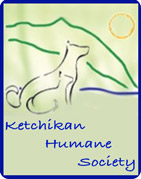


The Local Paper is
available online.
Click here for this week's printed edition (PDF)
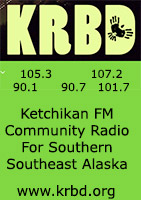

|
|
![]() Contact
Contact ![]()
![]() Webmail
Letters
Webmail
Letters![]()
![]() News Tips
News Tips![]()
![]() Copyright Info
Copyright Info![]() Archives
Archives![]() Alaska
Alaska![]() Ketchikan
Ketchikan![]() SE Alaska
SE Alaska![]() Dave Kiffer
Dave Kiffer![]() Money Matters
Money Matters ![]() June Allen
June Allen![]() Dave
Kiffer
Dave
Kiffer![]() Louise
B. Harrington
Louise
B. Harrington ![]() Ketchikan Links
Ketchikan Links![]() FAA Accident Reports
FAA Accident Reports ![]() NTSB
Accident Reports
NTSB
Accident Reports![]() Court Calendar
Court Calendar![]() Recent Filings & Case Dispositions
Recent Filings & Case Dispositions ![]() Court Records Search
Court Records Search![]() Sex Offender Reg.
Sex Offender Reg.![]() Public Notices
Public Notices![]() Alaska Recall Alerts
Alaska Recall Alerts![]() Recalls.gov
Recalls.gov![]() AST Daily Dispatch
AST Daily Dispatch![]() KTN
Police Reports
KTN
Police Reports![]() Juneau Police Reports
Juneau Police Reports ![]() Today's
Forecast
Today's
Forecast![]() KTN
Weather Data
KTN
Weather Data![]() AK
Weather Map
AK
Weather Map![]() AK Weathercams
AK Weathercams![]() AK Earthquakes
AK Earthquakes







































